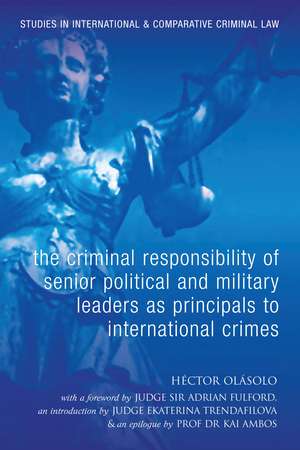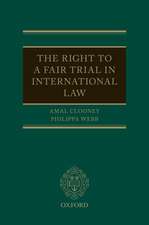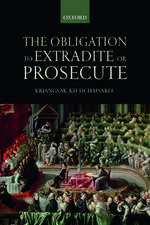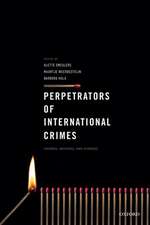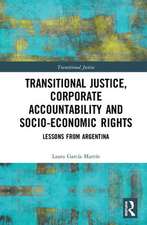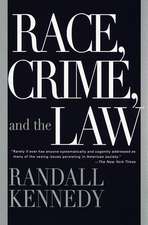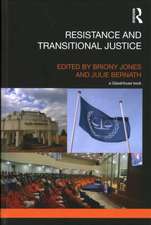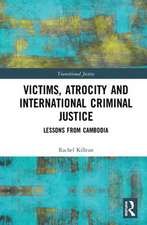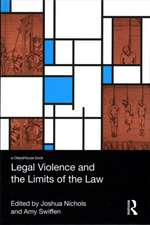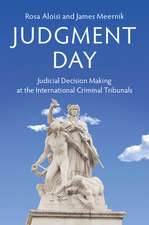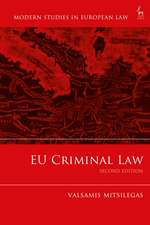The Criminal Responsibility of Senior Political and Military Leaders as Principals to International Crimes: Studies in International and Comparative Criminal Law
Autor Héctor Olásolo Cuvânt înainte de Adrian Fulford Introducere de Ekaterina Trendafilova Epilog de Professor Dr. jur. Kai Ambosen Limba Engleză Paperback – 21 iun 2010
| Toate formatele și edițiile | Preț | Express |
|---|---|---|
| Paperback (1) | 275.26 lei 3-5 săpt. | |
| Bloomsbury Publishing – 21 iun 2010 | 275.26 lei 3-5 săpt. | |
| Hardback (1) | 573.11 lei 3-5 săpt. | |
| Bloomsbury Publishing – 14 mai 2009 | 573.11 lei 3-5 săpt. |
Din seria Studies in International and Comparative Criminal Law
- 30%
 Preț: 897.55 lei
Preț: 897.55 lei - 18%
 Preț: 358.30 lei
Preț: 358.30 lei - 30%
 Preț: 540.65 lei
Preț: 540.65 lei - 27%
 Preț: 345.42 lei
Preț: 345.42 lei - 28%
 Preț: 465.96 lei
Preț: 465.96 lei - 27%
 Preț: 442.83 lei
Preț: 442.83 lei - 27%
 Preț: 501.70 lei
Preț: 501.70 lei - 14%
 Preț: 603.73 lei
Preț: 603.73 lei - 14%
 Preț: 509.52 lei
Preț: 509.52 lei - 24%
 Preț: 374.34 lei
Preț: 374.34 lei - 11%
 Preț: 374.34 lei
Preț: 374.34 lei - 30%
 Preț: 779.33 lei
Preț: 779.33 lei - 30%
 Preț: 774.62 lei
Preț: 774.62 lei - 30%
 Preț: 893.89 lei
Preț: 893.89 lei - 24%
 Preț: 190.33 lei
Preț: 190.33 lei - 30%
 Preț: 570.02 lei
Preț: 570.02 lei - 18%
 Preț: 302.99 lei
Preț: 302.99 lei - 18%
 Preț: 297.86 lei
Preț: 297.86 lei - 18%
 Preț: 319.86 lei
Preț: 319.86 lei - 30%
 Preț: 603.81 lei
Preț: 603.81 lei - 30%
 Preț: 718.27 lei
Preț: 718.27 lei
Preț: 275.26 lei
Preț vechi: 350.52 lei
-21% Nou
52.68€ • 54.79$ • 43.49£
Carte disponibilă
Livrare economică 25 martie-08 aprilie
Specificații
ISBN-10: 1849460906
Pagini: 396
Dimensiuni: 156 x 234 x 20 mm
Greutate: 0.59 kg
Editura: Bloomsbury Publishing
Colecția Hart Publishing
Seria Studies in International and Comparative Criminal Law
Locul publicării:London, United Kingdom
Caracteristici
Notă biografică
Hector Olasolo is Professor of International Criminal Law and Procedure at Utrecht University and Chairman of the Iberoamerican Institute of the Hague for Peace, Human Rights and International Justice (IIH). LLM (Columbia University), PhD in Law (Salamanca University). He has been a Legal Officer in Chambers at the International Criminal Court (2004-2010), a member of the Legal Advisory and Appeal Sections of the Office of the Prosecutor of the International Criminal Tribunal for the Former Yugoslavia (2002-2004), and a member of the Spanish Delegation to the International Criminal Court Preparatory Commission (1999-2002). The author has written the books entitled 'Corte Penal Internacional: 'Donde Investigar?' (Tirant lo Blanch, 2003), 'The Triggering Procedure of the International Criminal Court' (Brill Publishers, 2005), 'Ataques contra Personas y Bienes Civiles y Ataques Desproporcionados' (Tirant lo Blanch, 2006), 'Unlawful Attacks in Combat Situations' (Brill Publishers, 2007), 'Terrorismo Internacional y Conflicto Armado' (with Prof. A. I. Perez Cepeda, Tirant lo Blanch, 2008) 'Ensayos sobre la Corte Penal Internacional' (Universidad Javeriana de Bogota/Dyke, 2009), and 'Esstudios de Derecho Penal Internacional.' The views expressed herein are those of the author alone and do not necessarily reflect the views of the ICC, the ICTY, the United Nations or the Spanish Government.
Cuprins
Foreword by Judge Sir Adrian Fulford, presiding Judge of the Trial Chamber at the International Criminal Court. Introduction by Judge Ekaterina Trendafilova, Judge of Pre-Trial Chambers II and III of the International Criminal Court, dealing with the situations in Uganda and Central African Republic.
Recenzii
The book offers a clear, comprehensive and structured overview concerning the criminal responsibility of senior political and military leaders and gives a sound answer to the core questions linked to the attribution or imputation of crimes.The value of this book, based on a profound knowledge of international criminal law and different national criminal systems, is the combination of theoretical considerations and a great number of concrete examples that can support scholars and practitioners in deepening their understanding of the issue. Probably, it will be a milestone in the study of the criminal responsibility of senior political and military leaders in the performance of international crimes.
Descriere
As shown by the trials of Slobodan Milosevic, Charles Taylor, and Saddam Hussein, the large-scale and systematic commission of international crimes is usually planned and set in motion by senior political and military leaders. Nevertheless, the application of traditional forms of criminal liability leads to the conclusion that they are mere accessories to such crimes. This does not reflect their central role and often results in a punishment which is inappropriately low, in view of the impact of their actions and omissions. For these reasons, international criminal law has placed special emphasis on the development of concepts, such as control of the crime and joint criminal enterprise (also known as the common purpose doctrine), which aim at better reflecting the central role played by senior political and military leaders in campaigns of large scale and systematic commission of international crimes. The Rome Statute of the International Criminal Court, the case law of the International Criminal Tribunal of the former Yuglosavia, and the case law of the International Criminal Tribunal for Rwanda have, in recent years, played a unique role in the achievement of this goal. This book - now in paperback - is an important and comprehensive study of the modes of responsibility and liability in international criminal law. It fills a gap in the literature, as few books detail the drafting of indictments. It covers both substantive and procedural law and will be useful for students, academics, and practitioners of international criminal law.
